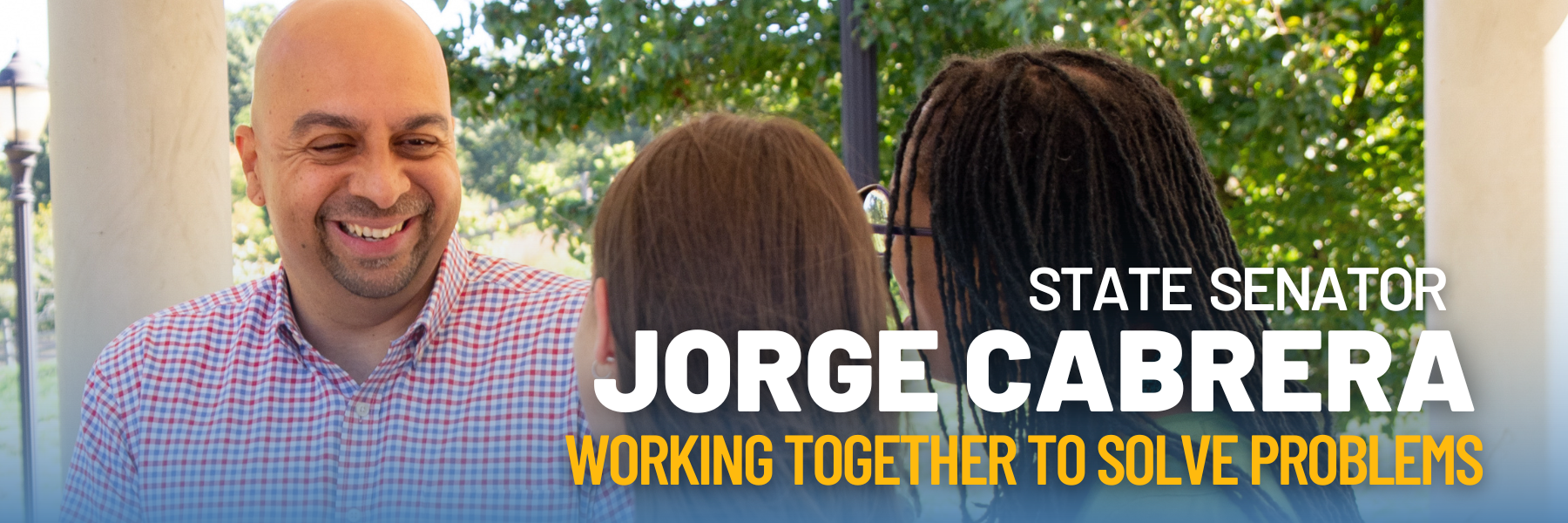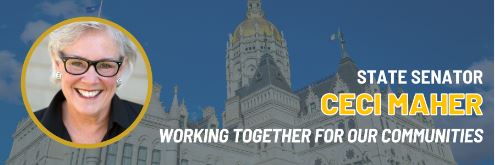
SENATOR CABRERA WELCOMES $3 MILLION STATE GRANT FOR INDUSTRIAL PARK IN NAUGATUCK
NAUGATUCK – State Senator Jorge Cabrera (D-Hamden) today welcomed a vote by the bipartisan Community Investment Fund (CIF) 2030 board that will bring $3 million to Naugatuck to further develop the abandoned, former Uniroyal tire site which will result in 600 to 800 new, permanent jobs and an increase of tens of millions of dollars in Naugatuck’s grand list of taxable property.
The CIF vote is a key step toward final approval of the projects by the State Bond Commission, which must come in the next 60 days.
“It’s almost impossible to describe what this state funding means to the people of Naugatuck and to the plans we have to redevelop the former Uniroyal tire site. It’s a massive, massive project that is going to pay unbelievable dividends to the town and the region, both in terms of hundreds of new jobs and tens of millions of dollars back onto the grand list,” Sen. Cabrera said. “I see very bright times ahead for Naugatuck with investments like this.”
Sen. Cabrera wrote a letter for support for the state funding along with Senator Joan Hartley, Representative Seth Bronko, and various community organizations.
Naugatuck Industrial Park III, formerly known as the Uniroyal Chemical/United States Rubber Company, is an 86-acre former brownfield. Throughout history, heavy industry contributed significantly to war efforts by way of manufacturing rubber for the boots and tires of American and British soldiers throughout the World Wars, leaving the site overwhelmingly contaminated. Thanks to combined efforts of the federal and state governments, the site has moved from the remediation phase to the redevelopment phase. This long-standing vacant land now has the opportunity to be placed back on the tax rolls for the benefit of the Naugatuck Valley workforce.
The Phase II project, located in the Naugatuck Industrial Park III, will expand progress made to-date on site, directly connecting to a previous CIF investment. Phase II will construct temporary and permanent access roads, including streetscaping, and utilities, in the public-right-of-way, allowing lot access for end users, as well as connection to utilities. Naugatuck has interested end users who will begin construction in the short-term in Phase II, necessitating the construction of Phase II roadways. Phase II will include the re-construction of a middle-mile roadway that will run east-west through the site, unleashing the economic development potential of all lots to the north and south. The roadway is an established dirt roadway that is not suitable for the needs of 21st century business. This regional project has the capability to create an estimated 600 to 800 permanent jobs for communities throughout the Naugatuck Valley, including Waterbury, Ansonia, Seymour, Beacon Falls, and Derby.
The site appraised at $1.75 million in 2022, but redevelopment of the parcel is expected to increase its value to between $50 million and $75 million.
The Community Investment Fund 2030 (CIF) was created by a bipartisan vote of the General Assembly in 2021 and is funded through state bonding. The CIF fosters economic development in historically underserved communities across the state. The CIF will provide hundreds of millions of dollars to eligible municipalities as well as not-for-profit organizations and community development corporations that operate within them.
CIF grants are available for:
Capital improvement programs, such as brownfield remediation, affordable housing, infrastructure, clean energy development, and home or public facility rehabilitation.
Small business capital programs, including revolving or micro loan programs, gap financing, and start-up funds to establish small businesses.
Planning for capital projects including activities such as community engagement processes, feasibility studies, development of project plan and construction budget.







